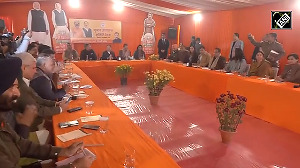The domestic textile industry was upbeat about the possibilities presented by Bt cotton, even as the first commercial harvest certain Bt cotton grades has yielded good results for cotton farmers.
Key textile industry players said they were convinced that BT cotton could help India improve its competitiveness in the global textiles industry.
While the total acreage under Bt cotton was currently quite low, it was expected to progressively increase. Further, with more biotech companies entering the fray, the prices of Bt seeds were expected to come down over time.
For textile industry players, this has emerged as best possible news for improved yields were expected to lead to fall in cotton prices.
Says R K Dalmia, president (textiles division), Century Textiles and Industries, "If Bt cotton was harvested on a large scale in the country, it would have a positive impact on the growth of the textile industry. It would help in lowering cotton prices as yields improve."
M B Lal, a top executive at Cotton Cooperation of India, said: "Under the Tenth Plan, production of cotton was expected to touch 225 lakh (@.25 million) bales. There was lot of scope of growth for the industry with Bt cotton, considering that India has the largest area under cotton cultivation."
Currently, India's yields are abysmal when compared to other countries. For instance, average yield per hectare in China was around 1,000 kgs and 940 kgs in Brazil, against 300 kgs in India.
Currently, the government has allowed trials on Bt production in certain pockets of the country.
B A Patel, joint textile commissioner-cotton of the office of textile commissioner, said, "It would take at least two years for the industry to reap the benefit of Bt cotton."
Arvind Mills, Vardhman group and Ashima were among other leading players in the domestic textile industry.
According to data available from the Mumbai textile commissioner's office, cotton production between October 2001 -- September 2002 stood at 158 lakh (1.58 million) bales as compared to 140 lakh (1.4 million) bales in the corresponding period previous year.
Surveys have established that 55,000 farmers in six states, who harvested insect protected Bt cotton seeds manufactured by Mahyco Monsanto Biotech in the kharif crop in 2002, reported a 65-70 per cent reduction in use of pesticides, in addition to an increase in income of around Rs 7,000 per acre due to substantially improved yields.






 © 2025 Rediff.com -
© 2025 Rediff.com -